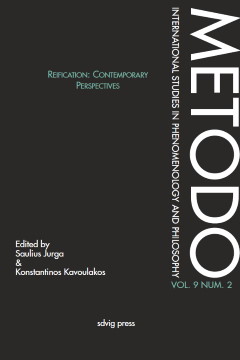Living in a state of molecular aggregation
Jean-Paul Sartre on reification and massification
pp. 389-416
Abstract
To act or think like a thing is a theme that runs as a red thread through Sartre’s oeuvre, but it is only in his Critique of Dialectical Reason that he would come to a coherent account of reifcation, which underpins what is perhaps his most seminal achievement in this book, the theory of the series. In contrast to Lukács’ account of reification, which has roots in Marx’s notion of social form, Sartre’s theory draws on diferent theoretical resources, such as the notion of inertia and the exteriorisation of internal relations. It underpins his notion of the mass, which he understands as fundamentally ambivalent: the mass is the product of seriality and reification, it is the subject of steering and manipulation, but it can never be fully controlled. In specifc circumstances its internal dynamic can lead to forms of dereification through the interiorisation of number, which underpins the formation of a group, the agent of collective action.
Publication details
Published in:
Jurga Saulius, Kavoulakos Konstantinos (2021) Reification. Metodo 9 (2).
Pages: 389-416
Full citation:
Lievens Matthias (2021) „Living in a state of molecular aggregation: Jean-Paul Sartre on reification and massification“. Metodo 9 (2), 389–416.


